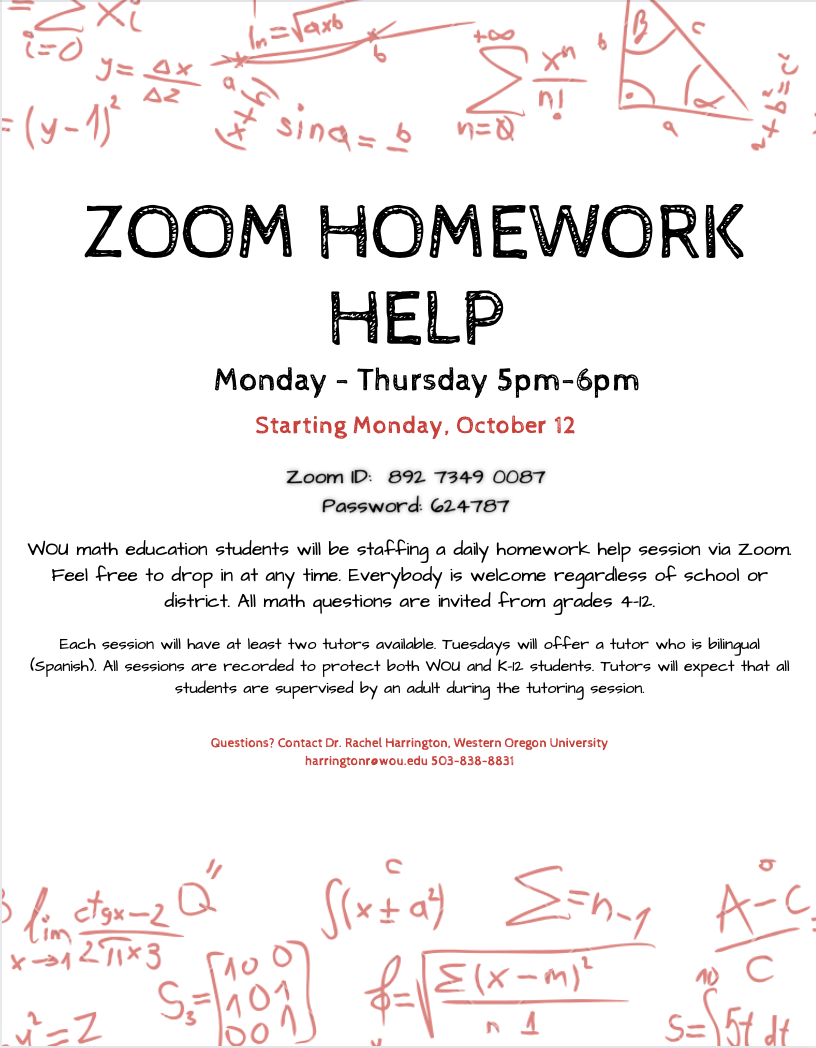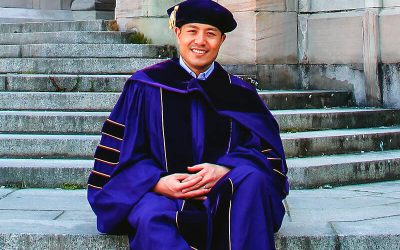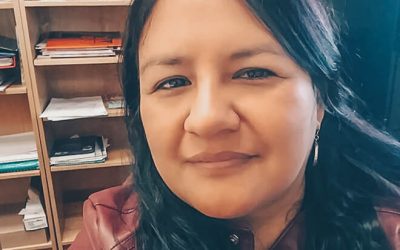Education students offer K-12 mathematics tutoring during distance learning
During fall term students in WOU’s Undergraduate Teacher Licensure Program tutored more than 300 K-12 students in online mathematics tutoring sessions.
Dr. Rachel Harrington, a professor of mathematics education, and Courtney Fortenberry, an instructor who teaches elementary mathematics methods courses, have started online tutoring programs to give their students real-world teaching experience.
Harrington and her students started hosting hour-long open tutoring sessions Monday through Thursday starting in mid-October and they have seen students from as far away as Alaska and Arizona join. Harrington said each session typically has 15 to 20 K-12 students attend.
“It’s a testament to our WOU students that there are kids coming back night after night,” said Harrington.
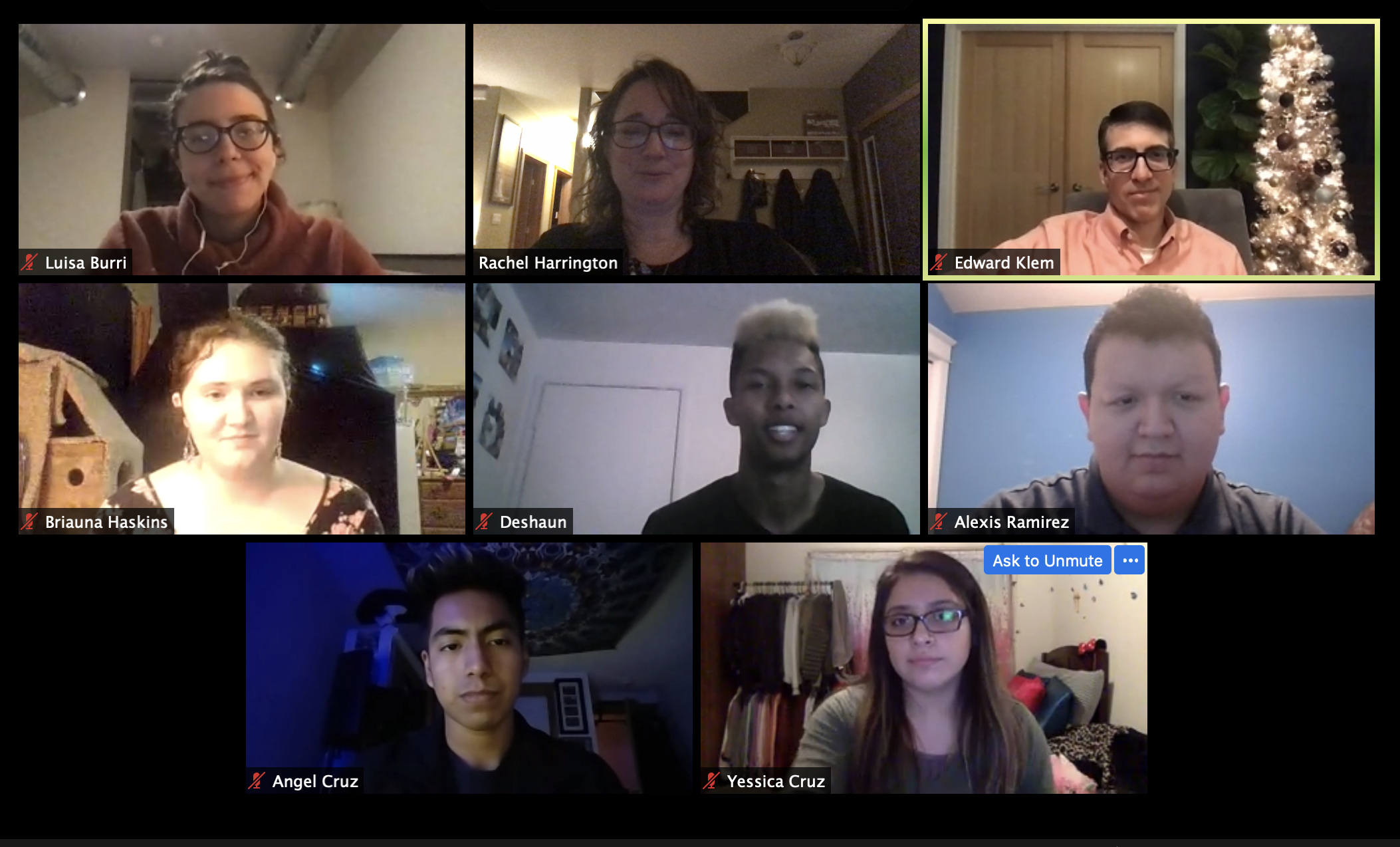
Harrington said initially she had students in her mathematics pedagogy course sign up for shifts as part of their class requirements, but as the term progressed, she also brought in pre-education majors to tutor as a way to complete their observation hours requirements. On average, she said, there are six to seven WOU students tutoring during each session.
Harrington said the program is meeting a real need in a time when many kids are struggling with distance learning during the COVID-19 pandemic, but it also gives aspiring teachers valuable experience.
“My students are loving it,” she said. “They get a lot of experience teaching through Zoom.”
Harrington added that she’s only promoted the service by sharing it on social media, but posts about the program have been shared hundreds of times.
“It’s kind of interesting how it caught fire,” she said.
Harrington added that the sessions have been a challenge because she hosts each one herself. However, she said, she likes that she gets the unique opportunity to see her students teaching and give them advice and feedback during debriefings after each tutoring session.
Fortenberry has taken a different approach with her students, who are aspiring elementary teachers. Rather than host open tutoring sessions, she and her students are offering tutoring to elementary students as part of the regular school schedule in the Dallas School District three days a week. Fortenberry said since elementary teachers are generalists and some are less confident teaching math, she wanted to give them a very structured approach to the tutoring opportunity.
She added that this approach also means parents don’t need to worry about getting their kids signed onto yet another video call.
“Parents don’t need another thing,” she said.
Fortenberry said she normally requires students in her elementary mathematics methods courses to get field experience, so this gave them an alternate way to do that. And she too has added pre-education majors seeking observation hours to the program. She said it is valuable for students to get a chance to apply methods and concepts they have learned in class.
“It’s been a mutually beneficial experience,” she said.
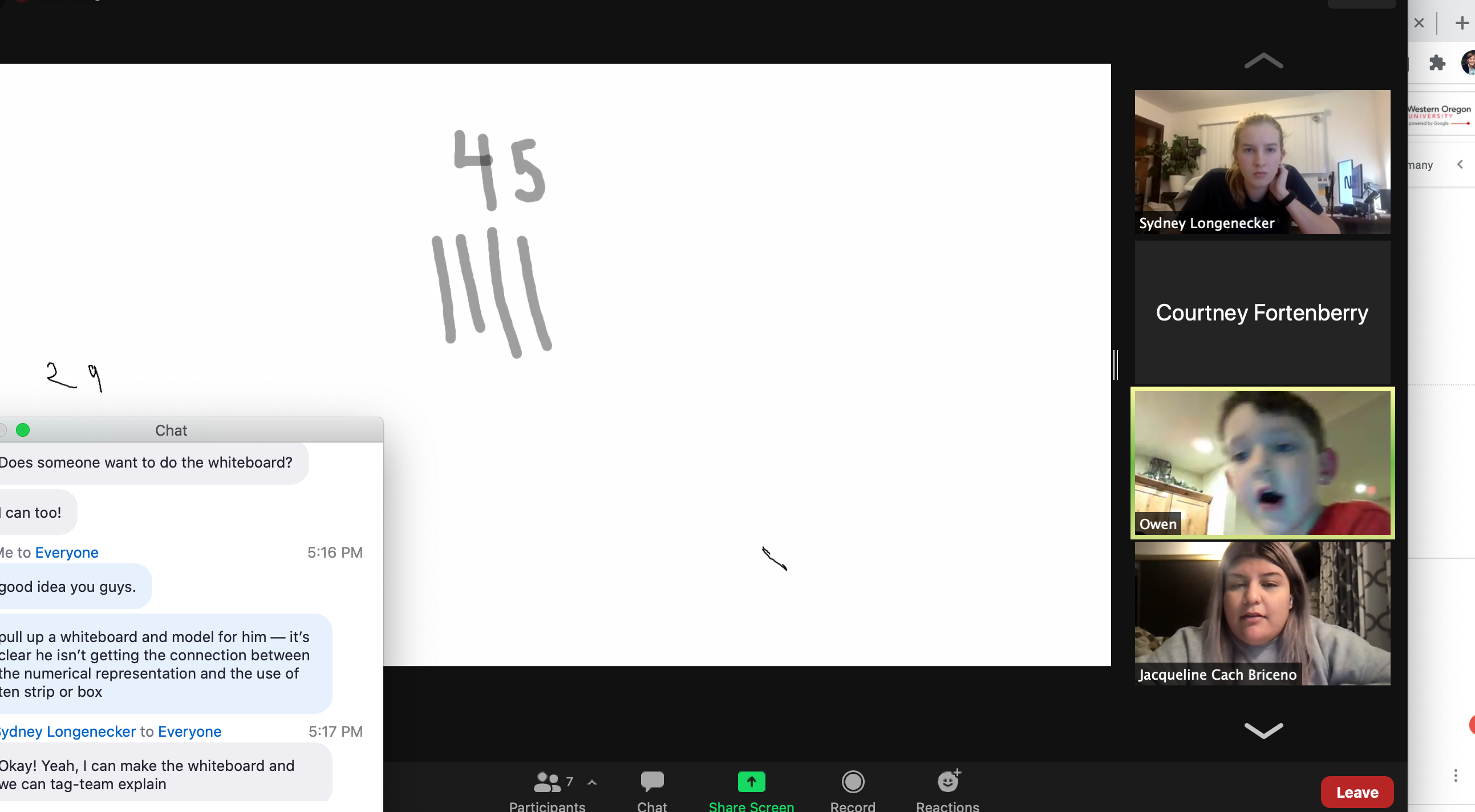
Fortenberry added that she has also appreciated the unique opportunity to support her students as they learn to teach: being online means she can message them suggestions in real time, something that’s not possible in a normal learning environment.
“I can give them minute-by-minute feedback, which is cool,” she said.
Harrington’s students have finished tutoring for fall term, but she plans to have them resume tutoring in winter term. Possibly, she said her program may expand to offer tutoring in other subjects.
